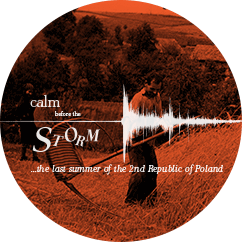
Calm before the storm is a very special moment. This is not about dead silence, but about a unique sense of anticipation. The air is almost completely still and nature remains motionless. Everyone knows that the storm is coming, but at the same time they hope that it will somehow pass them by. The closer it approaches, the stronger the wind gets. In the meantime, people are trying to prepare themselves, more and more frantically with every minute, for the inevitable disaster. And yet, they are all well-aware that they won't manage to get ready for what's coming. It tends to start with a sudden thunder...
And this is exactly what it felt like in July and August of 1939, two months before the outbreak of WWII . On 23 June, schoolchildren began their summer break. Some Poles left for “summer resorts”, as they used to be called; some remained at work, looking forward to the forthcoming leisure time. For most citizens of the Second Polish Republic not much changed: their days passed as usual, there may have been some extra work due to the approaching harvest, they would celebrate the same holidays they celebrated each year during summer months. However, not everything was the same – somewhere in the background of everyday life political pressure was building up, to find its release on 1 September 1939. But before that happened, as it usually is the case, things looked normal – well, almost normal, as the storm was on its way.
The web page you are about to read focuses on the social dimension of the last two months before the outbreak of WWII. For this reason you are not going to find here anything about organisation of military units, while the details of diplomatic manoeuvres made in the last weeks before the war received only a short mention in the timeline of important events. The exhibition mostly comprises press materials – including photos taken by the photographers from the Agency of “Ilustrowany Kurier Codzienny” ["Illustrated Daily Courier"], articles and opinions of the contemporary publicists, which, in our opinion, reflect most faithfully the prevailing atmosphere of those moments. As you are probably going to notice, some of the presented materials were published after 1 September 1939. This resulted from the publishing cycle of weeklies. Hence, situations were common in which readers could read about preparations for the war while the war was already being waged...
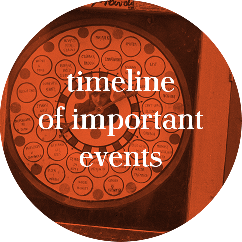
23 June
beginning of the summer break and on the following day – the nation-wide celebration of Sea Days
2 July
Jakub Bujak, Janusz Klarner, Adam Karpiński and Stefan Bernadzikiewicz are the first climbers to reach the top of Nanda Devi (7000 m.a.s.l) in the Himalayas
3 July
Marian Chodacki, General Commissioner of Poland in the Free City of Danzig, sends his report to Warsaw, warning the authorities of mounting tension between the two nationalities
6 July
The Council of Ministers, having cut down expenditure in other sections of the budget, earmarks additional 5 million zlotys for supporting the army
10 July
Lieutenant Stanisław Koc and Edward Raczyński, Ambassador to the Court of St. James's, return to London to resume talks about British aid for Poland. In his speech delivered in the House of Commons, Neville Chamberlain, British Prime Minister, confirms his intention to support the Second Polish Republic
11 July
The first news of strengthened relations between the Third Reich and the Soviet Union reaches Warsaw
13 July
The Third Reich puts pressure on France, demanding that it keep away from the “area of German interest”
14 July
construction work on Polish fortifications commences north of Mława (“Mława Line”)
15 July
Poles celebrate the anniversary of Polish victory in the Battle of Grunwald
16 July
Polish President Ignacy Mościcki takes part in the ceremony of beginning harvest in Spała
17 July
British Inspector-General of Overseas Forces General Edmund Ironside, visits Poland (until 21 July)
20 July
an incident at the border between Poland and the Free City of Danzig, near the town of Trzcianka: a Polish soldier was killed while trying to stop Danzig municipal guards from illegal crossing of the border
22 July
50 Renault R-35 tanks are delivered to Poland from France
23 July
a speech delivered by Albert Forster, NSDAP Gauleiter of Danzig, clearly shows that military preparations targeted against Poland are being carried out in the Free City of Danzig
25 July
Polish cryptographers Marian Rejewski, Jerzy Różycki and Henryk Zygalski pass to the Brits the results of their work and one unit of the German cipher machine Enigma
26 July
German and Soviet delegations agree on expanding the scope of their talks to also include political matters
27 July
local floods in Poland
29 July
Joachim von Ribbentrop instructs the German ambassador in Moscow to pass to the Soviet side a proposal of a treaty
30 July
negotiations are held in London on offering Poland a loan for rearmament of the Polish army; a day later, during a debate in the House of Commons, some opinions in favour of it are expressed
2 August
conclusion of the Polish-English loan agreement with the loan amount earmarked for military purposes (8 million pounds)
3 August
car of the General Commissioner of Poland in the Free City of Danzig, carrying the customs inspector named Siekierski, is assaulted with petards at border of the Free City and East Prussia
4-5 August
relations between the Second Polish Republic and the Free City of Danzig become very tense when the municipal authorities obstruct work of Polish customs officers
6 August
anniversary of marching out of the First Cadre Company from Oleandry Street in Krakow
9 August
Ambassador of the Third Reich in Poland Hans von Moltke is instructed to remain in Germany. He is forbidden to talk to the Polish side
10 August
Mirosław Arciszewski, Polish Deputy Foreign Minister, during his meeting with the German chargé d"affaires, firmly opposes German involvement in the problems between Poland and the Free City of Danzig
12 August
Talks between military delegations from Great Britain, France and the Soviet Union commence in Moscow – their topic is to be a trilateral agreement
13 August
the second partial emergency mobilisation is ordered in Poland
14 August
Marshal Kliment Voroshilov asks French and British diplomats about the possible entry of the Red Army units into the territory of the Second Polish Republic in case of German invasion of Poland
15 August
after the declaration made by von Ribbentrop on the previous day regarding his interest in making an official visit to Moscow, talks commence to facilitate it Poles celebrate the anniversary of the Battle of Warsaw of 1920
16 August
French diplomats attempt to convince Poles to accept the Soviets' proposal of their intervention in case of war
17 August
Wojciech Korfanty dies. He was a politician and journalist, Polish nationalist activist in Silesia, one of the leaders of the Polish Christian Democracy Party
18 August
military attachés of Great Britain and France urge Poles to accept the Soviets' proposals of their intervention in case of war; the Polish side declines, which is officially confirmed by Minister Józef Beck on the following day
20 August
Hitler asks Stalin to meet with von Ribbentrop no later than on 23 August – Stalin agrees on the following day
21 August
German police in Silesia seals up Polish libraries and printing houses
22 August
state of alertness is proclaimed in military offices and the emergency mobilisation of border forces in Poland commences; in the meantime Hitler chooses the date of 26 August as the day of invasion
23 August
in Moscow, von Ribbentrop and Molotov sign a non-aggression pact for ten years. It is accompanied by a secret annex which stipulates the partition of Poland and delineates areas under control of the Soviet Union and the Third Reich
24 August
card-based mobilisation commences in Poland Pál Teleki, Hungarian Prime Minister, in his telegram to Hitler, in response to his question about potential Hungarian involvement in the military attack on Poland, writes that Hungary will not participate in any military operation against Poland for moral reasons
25 August
A treaty of mutual aid between the Second Polish Republic and Great Britain is signed in London The “Schleswig-Holstein” battleship arrives in Gdańsk as part of a “friendly visit” Mussolini refuses to fight Poland as a German ally; Hitler cancels his decision on the attack
26 August
Hitler orders that the attack on Poland commences on 1 September. Soviet ambassador Nikolai Sharonov meets with Minister Beck in Warsaw. The meeting is to demonstrate that despite the pact signed with the Third Reich, the Soviet Union wishes to cultivate friendly relations with Poland
27 August
Poles dig air raid trenches In response to the proposals of peace made by the French Prime Minister Édouard Daladier, Hitler firmly demands the Free City of Danzig and an extraterritorial transport corridor through Pomerania
28 August
food rationing system (food stamps) is introduced in the Third Reich without any previous warning. It is meant to be part of the war economy
30 August
President of the Second Polish Republic orders general mobilisation
31 August
at 00:30 a.m. Adolf Hitler signs the orders that determine the final date of the invasion of Poland – 1 September, at 4:45 a.m.
Józef Lipski, Polish Ambassador in Berlin, sends do the Ministry of Foreign Affairs the text of the German ultimatum that he has received from his British colleague. In the evening it is read out during a public broadcast aired by Deutschlandsender radio. At the same time the public is falsely informed that the ultimatum has been delivered to the Polish side which has rejected it. In Gliwice, a unit of Sicherheitsdienst (German intelligence agency), whose members pretend to be Silesian resistance fighters, attacks a German radio station as part of the “Himmler” operation
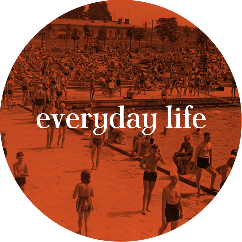
The everyday life of July and August in 1939 simple went on, as if ignoring the events of great international politics. Towards the end of June, the Days of Sea were celebrated, while during the following weeks numerous sport events took place. In the meantime, holidaymakers enjoyed the beautiful summer in seaside and mountain resorts. Those that could not leave eagerly frequented municipal swimming pools and other places of recreation.
During the hot summer some local floods and hailstorms took place. Newspapers, desperate to find any topic that could hit a headline in those uneventful months, covered them in detail. Not to be missed were the annual holidays and celebrations – sacrosanct dates in the summer calendar: the anniversary of the Battle of Warsaw in 1920, of the Battle of Grunwald (which gained whole new significance due to the tension between Poland and the Third Reich), country fairs, harvest festivals, etc.
A major success of that time was the climb of Polish travellers to the top of the 7,000 m high Nanda Devi in the Himalayas, which brought the death of two of the climbers. Because of that, much was written about “the curse of goddess Kali-Nanda”, which was part of the contemporary obsession with studying paranormal phenomena. In fact, the pages of Polish newspapers were filled with adverts of all sorts of fortune tellers, palm readers, clairvoyants and all kinds of mediums. Were any of them actually able to foretell what was to happen in two months?
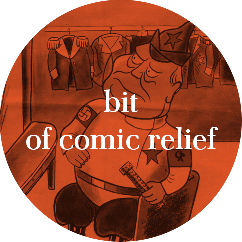
AUTHENTIC STORY
It almost makes me feel ashamed – the way people keep complaining about the Social Insurance Company. It is not really that bad as everyone says...
They accuse the Insurance company of performing sloppy medical examinations, of prescribing the cheapest medicine, of refusing to send people for treatments at holiday resorts... But here's a real story proving that the situation is not all that bad:
A patient comes to one of the Insurance company's doctors. The doctor is awfully polite. Although the patient looks healthy as a donkey, or maybe a horse, he is asked to undress. The doctor examines him as meticulously as he can. Taps his body, asks him to demonstrate the tongue... He diligently examines the heart, lungs, spleen, cecum, etc. But that's not enough! He calls in a panel of doctors for consultation.
The whole team mollycoddles the patient; they literately kowtow to him. They test, tap, look at the tongue, prescribe tonnes of medications. But not the plain old aspirin, iodine or castor oil. We are talking about the fanciest and most expensive medications. In the end, the doctors unanimously deicide to send the patient to some mountain resort in Zakopane or maybe to Jastarnia by the sea – whichever he chooses, all costs covered by the Company!
The treatment works like a charm. He recovers in no time. After six weeks of health leave he feels great and is ready to go back to work. Healthy, energetic and greatly relaxed he can now resume his duties – that of Vice-President of the Social Insurance Company.
FELIX.
“Wróble Na Dachu” weekly ["Sparrows on the Roof"], no. 32, 7 August 1939, p. 7.
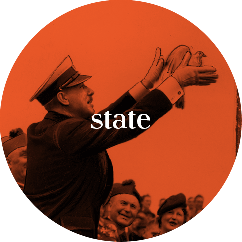
The functioning of the Second Polish Republic in the last months of its existence did not merely boil down to diplomatic attempts to ensure international safety to Poland and to avert the catastrophic deterioration of its relations with the Third Reich. Work was in progress on the investments commended in the second half of 1936 as part of the project of creating the Central Industrial Region. Newspapers enthused about electrification and extending the radio coverage in the state, referring to the bold visions presented in “15-year Plan of Poland's Development” assumed for 1939–1954.
Much attention was paid to uniting the nation around the notion of Polish sovereignty. In practical terms, this goal was achieved by highlighting the importance of state holidays and anniversaries that were somehow linked to Poland's rebirth. Of no lesser importance was the idea of “people for the army, army for the people”, which was reflected in the fund-raising activity of the National Defence Fund, Maritime Defence Fund and Air Force Loan. It helped secure financial means and purchase equipment for the Polish Army. In addition, attempts were made to present the army as the sole protector, in fact a guarantor of independence. Was not military effort, supported with political activity, the driving force behind the creation of the Second Polish Republic?
Building of social confidence (brutally shuttered in September 1939) in the development and vigour of the young state was meant to nullify the fear of approaching war.
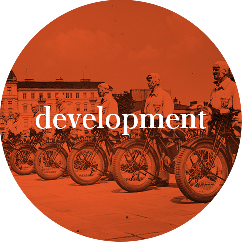
MAGNIFICENT TRANSPORT ROUTE IS BEING BUILT ALONG WYBRZEŻE GDAŃSKIE AND WYBRZEŻE GDYŃSKIE
(sections of the Vistula River banks in Warsaw)
In August 1935, the Warsaw municipality began construction of a massive transport route along Wybrzeże Gdańskie and Gdyńskie which would link Żoliborz district with Nowy Zjazd. Fieldstone was used during work which ended in 1936. Due to a very large size of embankments created in the course of construction and settlement of soils, it was impossible to deliver even surface right away. After two years of operation, namely last year, when the settlement process ended, asphalt was laid over the total distance of 3,100 m.
“Tygodnik Ilustrowany” weekly ["Illustrated Weekly"], no. 31, 30 July 1939, p. 604.
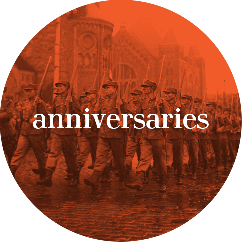
PREPARATIONS FOR GRUNWALD
The Polish Army marching towards Grunwald crossed this very bridge. The infamous “Drang nach Osten” was stopped. However, “pushing eastward” revives again and again on the pages of history. We are now witnessing a new wave of Germanic imperialism. In the ideological sense, it does not differ much from the medieval Crusades. Klaipeda is already in the German hands. Lithuania once again gets on well with the Crown [of the Kingdom of Poland]. The expansion of Poland as a powerful country thwarts all imperialist plans in the Baltic area. The heirs of the Teutonic Order should better remember the bold words of Józef Piłsudzki: “Our rebirth will completely break into pieces and annihilate Prussia.”
“Tygodnik Ilustrowany” weekly ["Illustrated Weekly"], no. 30, 23 July 1939, p. 570.
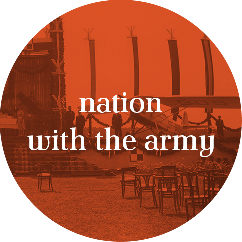
ALL MEN UP TO 50 YEARS OF AGE MUST CLARIFY THEIR MILITARY STATUS
The Army Department at the City Office in Warsaw sets up additional draft commissions to which all men born in 1918 or older, up to 50 years of age, will report, who have yet not settled their military status. Such persons will receive calls by name from the army department (10 Floriańska Street).
“Gazeta Polska” daily ["Polish Newspaper"], after: “Almanach 1939”, Warsaw 2008, July 12.
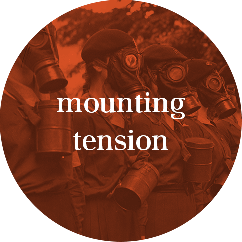
The political situation in the summer of 1939 resulted from the German policy realised practically since the 1920s targeted against the provisions of the Treaty of Versailles and countries of Eastern Europe; it also resulted from the Third Reich's expansion to the East, as outlined by Adolf Hitler in “Mein Kampf”. Claims related to the Free City of Danzig, formation of an ex-territorial motorway and a railway route via Poland's Pomerania and Poland's accession to the Anti-Comintern Pact were presented on 24 October 1938 by Joachim von Ribbentrop during his conversation with Poland's ambassador in Berlin – Józef Lipski.
On 15 March 1939, Hitler forced the President of Czechoslovakia Emil Hách, who was at that time in Berlin, to turn Czech, Moravia and Czech Silesia (which has not been incorporated into the Third Reich as a result of the Munich Agreement) into an autonomic administrative unit, dependant on Germany, called the Protectorate of Bohemia and Moravia; on 21 March 1939, Hitler sent an official memorandum to the Polish government in which he once again tackled the issues of the transit road and the Free City of Danzig. Until that moment, the fact that such pressure had been exerted on the Second Republic and that the talks on the matter had been held was unknown to the Polish and international public opinion – not even to the Chief of the General Staff of the Polish Armed Forces. Poland's reply to these actions was a secret and partial mobilisation on 23 March, as well as an official dismissal of the German memorandum three days later.
In July and August, one could observe in Poland increased activity aiming at raising fitness of the whole society. Air and anti-gas defence training was intensified along with the training of the Polish Red Cross; at recreational camps of Polish factory workers much attention was paid to keep-fit exercises. It was a sign of awareness that another war would engage civilians to a much greater extent that WWI. Cases of speculation with basic necessity items were severely punished.
The holiday months of 1939 became a climax period for the tension on the international arena – on the one hand, it was affected by signing of the Molotov-Ribbentrop Pact (governments of Western allies of Poland were aware of the existence of a secret annex to it), while on the other hand – by the mutual agreement and guarantees between the governments of Poland, Great Britain and France. It was a peak of what Polish and foreign press called “white war” – a war of nerves in which both sides showed only some of their cards to force the opponent to change his position. As 17 September 1939 showed, one of the main Third Reich's cards remained covered for Poland until the very end.
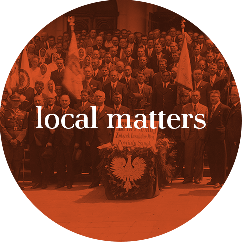
The moods in the regions are best represented by an interview with a resident of Rzeszów, carried out by a chronicler of that days, Franciszek Kotula:
When in late September [1939] political tension was at its worst, when s. many people still hoped that the conflict would be resolved amicably, I visited a lawyer, Józef Liwa, Ph.D., a former MPs, councillor and county chairman of the National Party. I was curious what he would say. He told me the war was inevitable and that it would be a hard one, but Germany is bound to lose it. He explained to me that the Polish policies towards Germany were disastrous, that Poland had itself to blame for letting Germany grow s. strong, that Poland was only reaping the fruits of its own political actions, that Minister Beck should face a court trial. A the same time, he added:
– My son is already in the army, in Przemyśl. I went to see him yesterday (on Sunday). There are lots of them there, all of them young lads, well brought-up. You should see the excellent mood they are in. Sir, they are full of joy. His mother thought he'd be depressed, but he was happy; she returned home much calmer. Generally speaking, soldiers are in excellent spirits. I felt s. proud looking at them. They are good Polish boys, you know. If there's a war, I'm volunteering for the army. I don't see myself doing anything else but that. If you spent s. many years bring in up the youth, you just have to set an example today!
Franciszek Kotula, “Times and people”, manuscript in preparation.
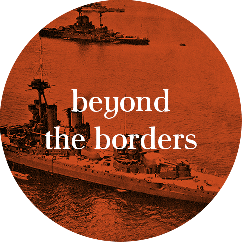
The “White War” in Eastern Europe became a topic of articles published in Western European and American newspapers. The former usually focused on anxiety experienced by their own societies that nervously followed the latest developments and changes in relations between Poland and Germany. The American press, on the other hand, tried to explain to Americans the intricacies of European politics, presenting opinions on what may potentially happen next. An open question was – what is the USA going to do if it comes to war?
Such materials reached Poland and excerpts from them were often reprinted in Polish periodicals, or sometimes Polish journalists would make reference to the opinions of foreign colleagues. Favourable articles were used to create an image of Poland that had strong allies ready to defend it (which was exemplified with articles and photo reports about military preparations in Western Europe), while critical articles (mostly German) were used to demonstrate the hypocrisy and hostility of enemy propagandists, as well as the methods German newspapers resorted to in order to give Poland a bad name.
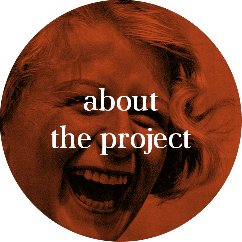
Everything began in 2012 with a classic exhibition telling about two last months of the Second Republic of Poland, but seen not from the perspective of grand politics, but from the perspective of what an average citizen encountered on a regular basis in pre-war Poland.
More than once, while reading books and historic papers one can have an impression than in July and August 1939, the whole country did nothing but wait for the war to come. It is worth realizing that the General commanders-in-chief of the Nazi Germany did not know until the very last moment what day and time they would attack Poland. The citizens did not even know whether the storm, whose angry sounds were to be heard over the horizon, would eventually come, or just pass.
We hope that thanks to the use of new communication techniques, we will be able to reach as big group of recipients as possible who are interested in the topic and that we will encourage them to search for themselves the signs of the great history.